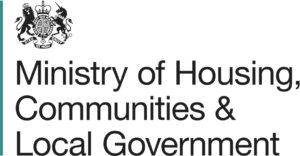
Overview
Throughout the last year many businesses have been forced to close in line with public health restrictions and faced significant periods of disruption to revenue. In response, Government introduced legislation to prevent landlords of commercial properties from being able to evict tenants for not paying rent; to restrict landlords’ abilities to recover rental arrears through the seizure of tenants’ goods; and to restrict the service of statutory demands and winding up petitions.
All of these measures are now in place until 30 June 2021.
Despite this extension these measures are temporary, and while the Government recognises they cannot – and should not – continue indefinitely, a carefully managed exit is necessary to preserve tenant businesses and the millions of jobs that they support.
This call for evidence will support the Government’s decision making on the best way to withdraw or replace these measures while preserving tenant businesses and the millions of jobs that they support. If there is evidence that productive discussions between landlords and tenants are not taking place, and that this represents a substantial and ongoing threat to jobs and livelihoods, the Government will not hesitate to intervene further.
The measures which are the subject of this call for evidence are:
- The moratorium on commercial lease evictions established by s82 of the Coronavirus Act 2020; and
- The restrictions on the use of Commercial Rent Arrears Recovery (CRAR) established by the The Taking Control of Goods (Amendment) (Coronavirus) Regulations 2021.
In addition, these measures are complemented by the restrictions on the use of winding-up petitions and statutory demands established by 41(1)(b) of the Corporate Insolvency and Governance Act 2020 which applies economy-wide. The content of these restrictions is not being considered here, however we are interested in the length of time for which these measures should be in place and how they relate to the other measures.
Why we are consulting
Scope of this call for evidence: The Government’s objective is to gather more evidence to understand how landlords and tenants are responding to the build-up of rent arrears that has occurred as a result of businesses being unable to trade normally during the pandemic. This will inform a better understanding of the risk to economic recovery posed by remaining rent debts, and to understand how landlords and tenants are adjusting existing lease terms to reflect the period of recovery that many tenant businesses will need once the trading restrictions are lifted. The evidence gathered will inform government policy regarding the exit from the existing measures and any need for additional measures to preserve viable businesses and the jobs that they provide.
In November 2020 the Government announced a review of the commercial landlord and tenant relationship, to consider a wide range of evidence from across the sector in order to make recommendations to the Government on potential reforms to the commercial property legislation. This call for evidence does not form part of that review.
The review is a part of a longer-term strategic policy development exercise in assessing the current condition of the commercial property industry with the intention that it should make recommendations to the Government on potential future reform. Further announcements regarding the review will follow in due course.
Many landlords have raised concerns about tenant businesses using Company Voluntary Arrangements (CVAs) to alter lease terms and disclaim leases of unprofitable locations, particularly after the landlord has agreed rent concessions with the tenant. The use of CVAs does not form part of this call for evidence. There have been a number of recent developments that may affect the use of CVAs in the future, such as the restoration of Crown Preference and the judgement in the Debenhams Retail Ltd case. There are also a number of legal challenges brought by landlords and others to the use of CVAs making their way through the courts. The Government will separately continue to monitor the use of CVAs and the impact that these recent developments are having on landlords.
Who should read this: The Government seeks views from businesses; business representative organisations; commercial landlords, lenders, and investors and their representative organisations; commercial property professionals; and anyone with an interest in or connection to the commercial property market in England. The Government is particularly interested in the views of small to medium sized businesses (SMEs) including small commercial landlords, independent businesses and sole traders with leased premises.
Duration: The Government would welcome responses by 23:59 on 4 May 2021.
Urban Policy Team
030 3444 0000
Regeneration@communities.gov.uk